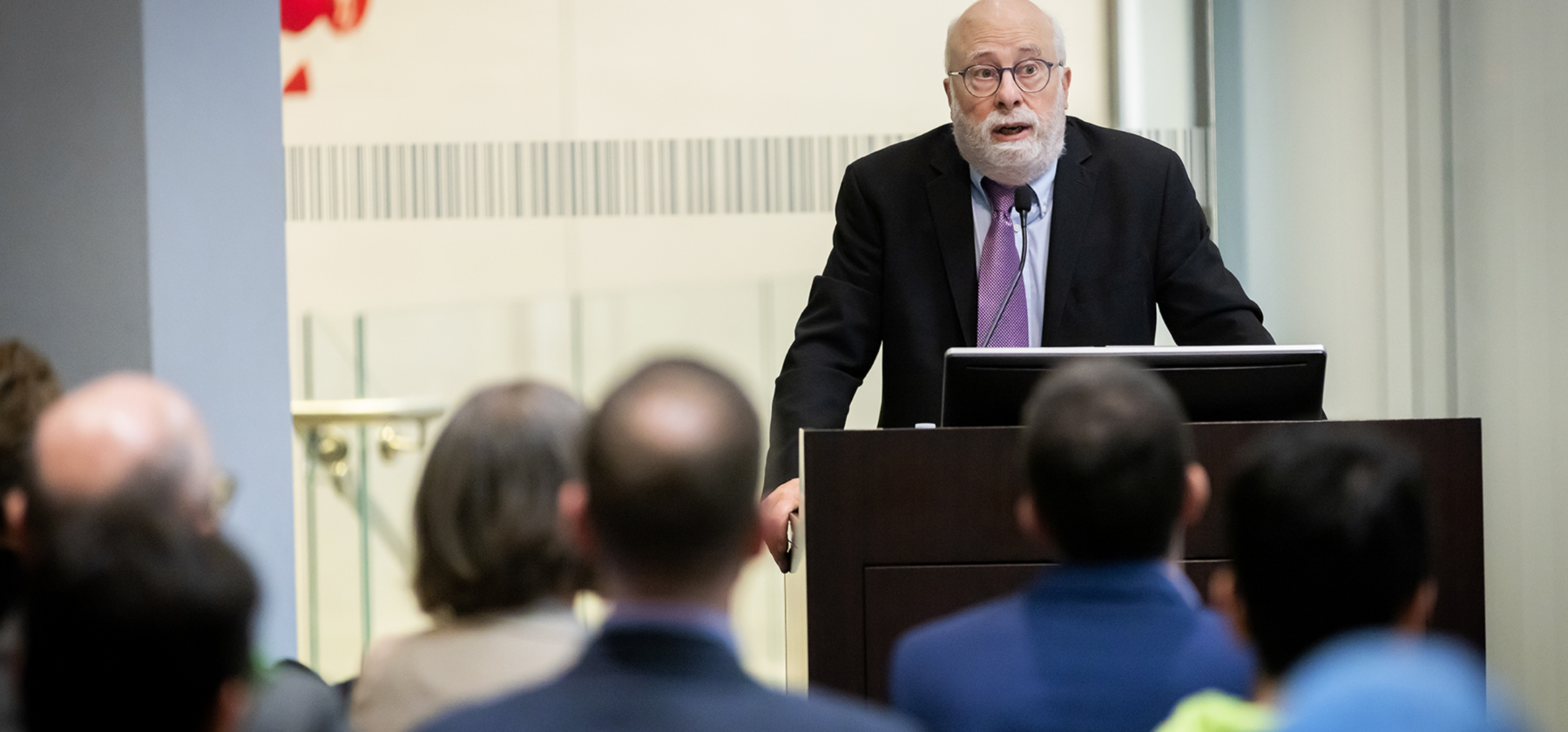Kenneth S. Stern published “The Conflict Over the Conflict: The Israel/Palestine Campus Debate” four years ago, but his book has understandably gotten more attention—from the press and leaders of universities—in recent months.
Stern, director of the Bard Center for the Study of Hate and former director of the division on antisemitism and extremism at the American Jewish Committee, spoke at Penn recently about freedom of expression, his issues with how a prominent definition of antisemitism is being used to censor, and what he left him feeling “disturbed” since being struck by the brutality of the Oct. 7 Hamas-led attack on Israel.
Stern said he was disturbed that debates over early statements from university presidents focused on the statements as a symbol rather than on how institutions could use their educational resources to help students. And at Penn, he was disturbed that some donors protested allowing the Palestine Writes Literature Festival.
“Reject anything that seems like groupthink or simplistic formulas. If you feel comfort from reducing complicated issues to binaries, alarm bells should be going off. Experiment. Be willing to be wrong,” Stern encouraged the audience toward the close of his remarks. “Care about academic freedom and free speech; it’s the lifeblood of what you’re doing at the university. You might feel good when ideas you abhor are shut down, but once that Pandora’s box is open, your ideas are at risk too, so push back.”
The Penn Libraries hosted the event, which was organized by the Jewish Studies Program and SNF Paideia Program with support from the Provost’s Office. The School of Arts & Sciences sponsored the event in connection with its Living the Hard Promise dialogue series.
“The Penn Libraries is proud to provide vital space for hosting important albeit challenging conversations like this one. Broadly speaking, libraries and an informed public are essential to democracy,” said Brigitte Weinsteiger, interim director of the Penn Libraries. “Here at Penn, by fostering civil discourse that embraces differing perspectives, our libraries embody the core tenets of academic excellence and inquiry.”
“Mr. Stern is an appropriate guest for this evening’s event precisely because he doesn’t fit well into boxes, at least in my reading of him,” said Joshua Teplitsky, director of the Jewish Studies Program. He invited attendees to “feel free to hold his feet to the fire” in the Q&A after the talk, and Stern similarly invited conversation from people who disagreed with him. Stern spent nearly 40 minutes taking questions from faculty and students.
In his remarks, he talked about the uptick in antisemitism and anti-Muslim rhetoric since Oct. 7, citing examples of threats against Jews in Italy, France, Germany, and Australia before talking about how France banned pro-Palestinian demonstrations and Florida Gov. Ron DeSantis directed state universities to shut down Students for Justice in Palestine chapters.
“To me this is McCarthyism,” Stern said. “And if you’re Muslim, this is all unfolding in the backdrop of the former and perhaps future president of the United States talking about banning Muslims, but also that they should register.”
Stern also criticized how the working definition of antisemitism adopted by the International Holocaust Remembrance Alliance (IHRA), which he drafted 20 years ago, has been deployed by universities. Stern said it was designed to determine what incidents from different countries to include in a report aiming to take the temperature of antisemitism across nations.
But Stern indicated that a turning point was when the U.S. Department of Education in 2010 released a Dear Colleague letter clarifying that Jews, Sikhs, and Muslims are protected under Title VI. He supported this but said Zionist and pro-Israel groups began using the IHRA definition as a basis for suing universities under Title VI—with complaints over what was being taught and what speakers were coming to campus—which Stern said is “nuts.”
“We’re missing the drivers of actual antisemitism in our country today,” Stern said. “When I speak to synagogues, I say, ‘If you’re concerned about antisemitism, be concerned about the vilification of Muslims, be concerned about the vilification of immigrants, because that’s what’s going to drive people to antisemitism. It’s not going to be what an 18-year-old on a campus may be saying about Israel.’”
Stern spoke to actionable steps that might be considered by universities. He mentioned the concept of institutional neutrality, pointing to the Kalven Report, a 1967 report out of the University of Chicago that advocated against university-wide positions on political and social matters against the backdrop of student protests against the Vietnam War. At the time, the committee creating the report concluded that, “dissent and criticism” should be left to individual faculty members and students while the institution should remain neutral.
Some of the other advice he has for universities is to apply the filter of whether something helps academic freedom or at least doesn’t harm it, think about creative new classes on the Israel-Palestine issue, and not use definitions to filter speech.
Read full article here.

